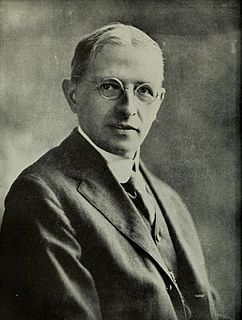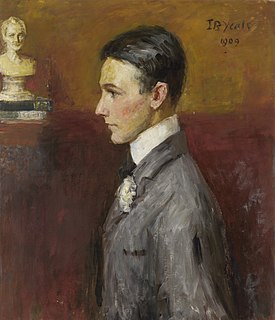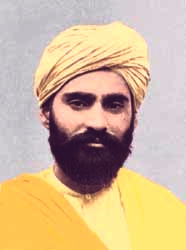A Quote by Hesketh Pearson
An author should be delighted, not annoyed when he hears himself persistently misquoted. He could receive no higher compliment. It proves that the world has frequent and urgent need of his thoughts and will rather change the manner in which he expresses them than do without the things expressed.
Related Quotes
These glorious things-words-are man's right alone...Without words we should know no more of each other's hearts and thoughts than the dog knows of his fellow dog....for, if you will consider, you always think to yourself in words, though you do not speak them aloud; and without them all our thoughts would be mere blind longings, feelings which we could not understand ourselves.
A man who has the courage of his platitudes is always a successful man. The instructed man is ashamed to pronounce in an orphic manner what everybody knows, and because he is silent people think he is making fun of them. They like a man who expresses their own superficial thoughts in a manner that appears to be profound. This enables them to feel that they are themselves profound.
Reason cannot desire for man any condition other than that in which not only every individual enjoys the most absolute, unbounded freedom to develop himself out of himself, in true individuality, but in which physical nature, as well, need receive no other shaping by human hands than that which is given to her voluntarily by each individual, according to the measure of his wants and his inclinations, restricted only by the limits of his energy and his rights.
One of the many things I learned at the end of that Classics corridor down which I ventured at the age of 18, in search of something I could not then define, was this, written by the Greek author Plutarch: What we achieve inwardly will change outer reality. That is an astonishing statement and yet proven a thousand times every day of our lives. It expresses, in part, our inescapable connection with the outside world, the fact that we touch other people’s lives simply by existing.
If a man does not keep pace with his companions, perhaps it is because he hears a different drummer. Let him step to the music which he hears, however measured or far away. It is not important that he should mature as soon as an apple-tree or oak. Shall he turn his spring into summer? If the condition of things which we were made for is not yet, what were any reality which we can substitute? We will not be shipwrecked on a vain reality.
Everything is only for a day, both that which remembers and that which is remembered. Observe constantly that all things take place by change, and accustom thyself to consider that the nature of the Universe loves nothing so much as to change the things which are and to make new things like them. For everything that exists is in a manner the seed of that which will be.
The Plagiarism of orators is the art, or an ingenious and easy mode, which some adroitly employ to change, or disguise, all sorts of speeches of their own composition, or that of other authors, for their pleasure, or their utility; in such a manner that it becomes impossible even for the author himself to recognise his own work, his own genius, and his own style, so skilfully shall the whole be disguised.
From time immemorial men have quenched their thirst with water without knowing anything about its chemical constituents. In like manner we do not need to be instructed in all the mysteries of doctrine, but we do need to receive the Living Water which Jesus Christ will give us and which alone can satisfy our souls.
Billy had a framed prayer on his office wall which expressed his method for keeping going, even though he was unenthusiastic about living. A lot of patients who saw the prayer on Billy’s wall told him that it helped them to keep going, too. It went like this: “God grant me the serenity to accept the things I cannot change, courage to change the things I can, and wisdom always to tell the difference.” Among the things Billy Pilgrim could not change were the past, the present, and the future.
A benevolent malefactor, merciful, gentle, helpful, clement, a convict, returning good for evil, giving back pardon for hatred, preferring pity to vengeance, preferring to ruin himself rather than to ruin his enemy, saving him who had smitten him, kneeling on the heights of virtue, more nearly akin to an angel than to a man. Javert was constrained to admit to himself that this monster existed. Things could not go on in this manner.
Even the Savior of the world, the Only Begotten Son of God, was obliged to come to earth and to take upon himself an earthly tabernacle. He experienced joy and sorrow, happiness and grief, lasting satisfaction and frequent disappointments. As Paul has written, "Though he were a Son yet learned he obedience by the things which he suffered; and being made perfect, he became the author of eternal salvation unto all them that obey him."



































